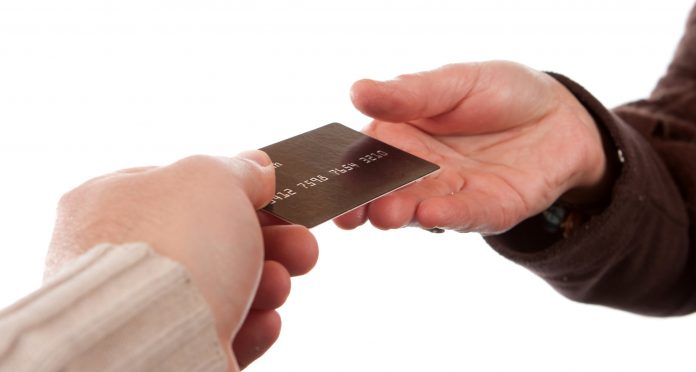Article #09
Introduction:
a) What is Credit and why you need it?
Borrowing money or receiving an item of value, such as a car, with the agreement to repay it later and frequently at an interest rate is referred to as “credit.” Borrowing and purchasing on credit can also be referred to as your creditworthiness. If you have good credit, you’ll be able to rent an apartment; buy a car; sign up for a cell phone service, or acquire a school loan. In addition to cheaper interest rates and waived fees, and down payments when signing up for utilities, having high credit can save you money in other ways.
b) Types of Credits
Revolving credit
It is common for revolving credit to be offered in the form of a credit card, where the user has a credit limit but can spend up to that amount in any way he or she wishes. Monthly payments are made in full or part, and any outstanding amount is carried over (or rotated) to the next month’s payment schedules.
Learn more about: The Winning Mindset Improve Your Mindset Achieve Anything!!!
Installment credit
Typically, installment credit comes in the form of a loan, which the borrower pays back in regular installments over a period of time. Student loans, vehicle loans, and mortgages are all examples of installment credit.
Service credit
Contracts you sign with service providers, such as utility companies and membership services, are referred to by the term service credit. Afterwards, you sign a contract to pay the service providers. This includes your cell phone contract, power bill, and gym membership.
c) How credit works?
Short-term loans from credit card issuers are called credit cards. Unlike a debit card, a credit card takes money from the issuer’s account and then charges you for it later. You can create a good credit rating by using credit cards in a responsible manner, which is reported to the credit bureaus. Whether it comes time to apply for larger loans like a mortgage, or when you’re searching for a job or an apartment, this credit history will come in handy.
d) What are credit bureaus?
You might think of credit bureaus as agencies that collect and provide to lenders all of the information you’ve provided about your credit usage and history. Experian, Equifax, and TransUnion are the three main credit bureaus.
Building Credit with Credit Cards
Your account and behavior are normally reported to the three major national credit bureaus—Experian, TransUnion and Equifax. This helps you develop credit. In order to calculate your credit score, the agencies utilize this information to build your credit report. Either open a credit card of your own or become an authorized user on someone else’s credit card before you may begin developing credit. If you’ve never had a credit card before, or if your credit is poor, it can be tough to get one of your own. Students may choose to start with a secured credit card or a student credit card, both of which can be good first options if you’re just getting started with building or rebuilding your credit.
Learn more about: WordPress website now – Get your website in 12-15 minutes
Building Credit without Credit Cards
In the absence of a credit card, there are other ways to develop your credit history and score. Find out if your payment history is being reported to Experian®, Equifax®, and TransUnion® by contacting your utility or loan company. You can boost your credit score for future loans and credit card applications if you make regular and on-time payments on your federal student loans. Understanding which organizations report on your payment history might help you avoid late payments, which could harm your credit score.
In order to build your credit, you can do one of the following : Involve yourself as an authorized user on someone else’s account by
Having your rent and utility payments reported to the credit bureaus
Building Credit without Credit History
As long as you don’t need to borrow money, having no credit history isn’t a big deal. Even if you don’t have any credit history or a thin credit file, you could still be denied financing for a home or a new automobile. We’ve put up a list of four ways you can get started right away. Credit card and loan applications can be difficult to receive if you don’t already have a history of managing credit accounts. A great approach to start building credit is to apply for your own secured credit card. If you’re looking for an easier way to get a credit card, you may want to apply for a shop credit card. If you pay your rent on time each month, you may be able to improve your credit rating as a result.
How to Stay on top of your Credit by being consistent and developing good credit habits.
• Your credit score may suffer if you have a history of late or missed payments on your credit card bills or other debts, so be sure you pay them all on time.
• Keep your credit usage ratio low by not maxing out all of your credit card accounts.
• Maintaining a credit history with older credit cards is an important part of your credit score. Your credit score could improve as a result of your good credit habits going on for a long time.
• Only apply for new credit when absolutely necessary, as multiple applications in a short period of time can negatively influence your credit score.
• Proactively inspecting your credit report for inaccuracies is an excellent approach to ensure that your credit score remains high.
Learn more about: Win-Spy is a complete Monitoring software . You can Monitor 5 Mobile Phones and 10 Remote PC from One Dashboard.!
Getting Help with your Credit
It’s possible to receive an authorized user on a credit card from a family member who has a good credit history, even if getting one on your own has been difficult. You can get a credit card linked to your account as an authorized user. Your name may be added to the credit bureaus’ databases if the credit card firm begins reporting the account’s information under your name. Having an authorized user on your account can be beneficial, but it also puts your credit health in the hands of the person who has that authorization. But if they don’t pay a payment on time, that can potentially affect your credit rating.
Mistakes to avoid while building Credit
• Multiple credit card applications- Many first-time credit card users make the mistake of signing up for a slew of cards at once in an attempt to fast build their credit score.
• A credit card is a terrific method to improve Credit, but there are some cards that cause more harm than good.
• Choosing the wrong credit card
• Your credit score may suffer if you sign up for the first credit card you come across.
• Borrowing more than you can afford is a bad habit to get out of if you’re attempting to develop Credit.
• Late payments are a major component of one’s payment history.
How to protect your Credit
Keep up with your loan repayments. The most crucial component in determining your credit score (35 percent) is how well you’ve handled past financial obligations.
Only apply for a new line of Credit when you truly need it.
• Don’t sign on. Co-signing a loan might be risky.
• Think about keeping your starter cards available. It is common for starter cards to have high-interest rates and fees and low limits and a lack of perks for those who have no prior credit history.
• Personal information should be protected. Do not give out personal information without your Social Security number or birth date without your permission.
• Be sure to keep an eye on all of your accounts on a regular basis. Even if you don’t use it, check each account to see if there are costs or if someone is fraudulently using your card. Don’t give up.
• Keep an eye on your credit score and make sure it doesn’t slip.
Learn more about: The Defense Bracelet
Credit Monitoring
Tracking changes in borrower behavior and creditworthiness is the goal of a credit monitoring service. When someone’s personal information is taken and used for malicious purposes, credit monitoring services can help prevent identity theft. It would be best if you were alerted when your credit card is stolen and used since the credit monitoring service should be alerted when there are changes in your purchasing patterns. If you’re concerned about identity theft, you’ll want to sign up for credit monitoring services to keep an eye on your finances. A wide range of criminal activities is associated with identity theft, from fraudulent credit card purchases to submitting fraudulent Social Security or Medicare claims.
Credit Counseling
Consumer credit counseling is a service aimed at assisting people in resolving their financial problems. With the guidance of a credit counselor, you can learn how to manage your financial situation better. A credit counselor may be able to provide you with advice or help you organize a “debt management plan” for all of your debts if you are struggling to keep up with your payments. Once a month or pay period, you make one payment to the credit counseling agency, which then makes monthly payments on your behalf to each of your creditors. Instead of negotiating a reduction in the amount of money you owe, credit counselors may be able to lower your monthly payment.
Tips on how to improve your Credit
• The first stage in expanding your credit file is to open new accounts that are reported to all three main credit agencies, which most major lenders and card issuers do.
• Credit scores are determined by your payment history, and the longer you have a history of on-time payments, the better your credit rating will be.
• It’s a good idea to catch up on past due accounts if you’ve fallen behind.
• Even if you’re current on your obligations, having a high balance on revolving credit accounts might affect your credit utilization rate and lower your score.
• Limit the number of new accounts you apply for.
Conclusion
The best strategy to develop a credit history is to get a credit card at the outset of your life. A secured credit card or loan can be used to do this. If you maintain a positive balance in a checking account for a long time, it will show lenders that you can save a portion of your salary.
This information helps lenders estimate a borrower’s risk level and ultimately how much money he or she will be eligible for as well as the terms of the loan they will offer. Big-ticket purchases like vehicles, appliances, and homes typically need the use of Credit. When it comes to appraising job applications and renters, solid credit history is frequently seen as a positive sign by both employers and landlords. Having a good credit score is essential to your financial well-being. Maintaining a strong credit rating is essential if you want to make future purchases.



